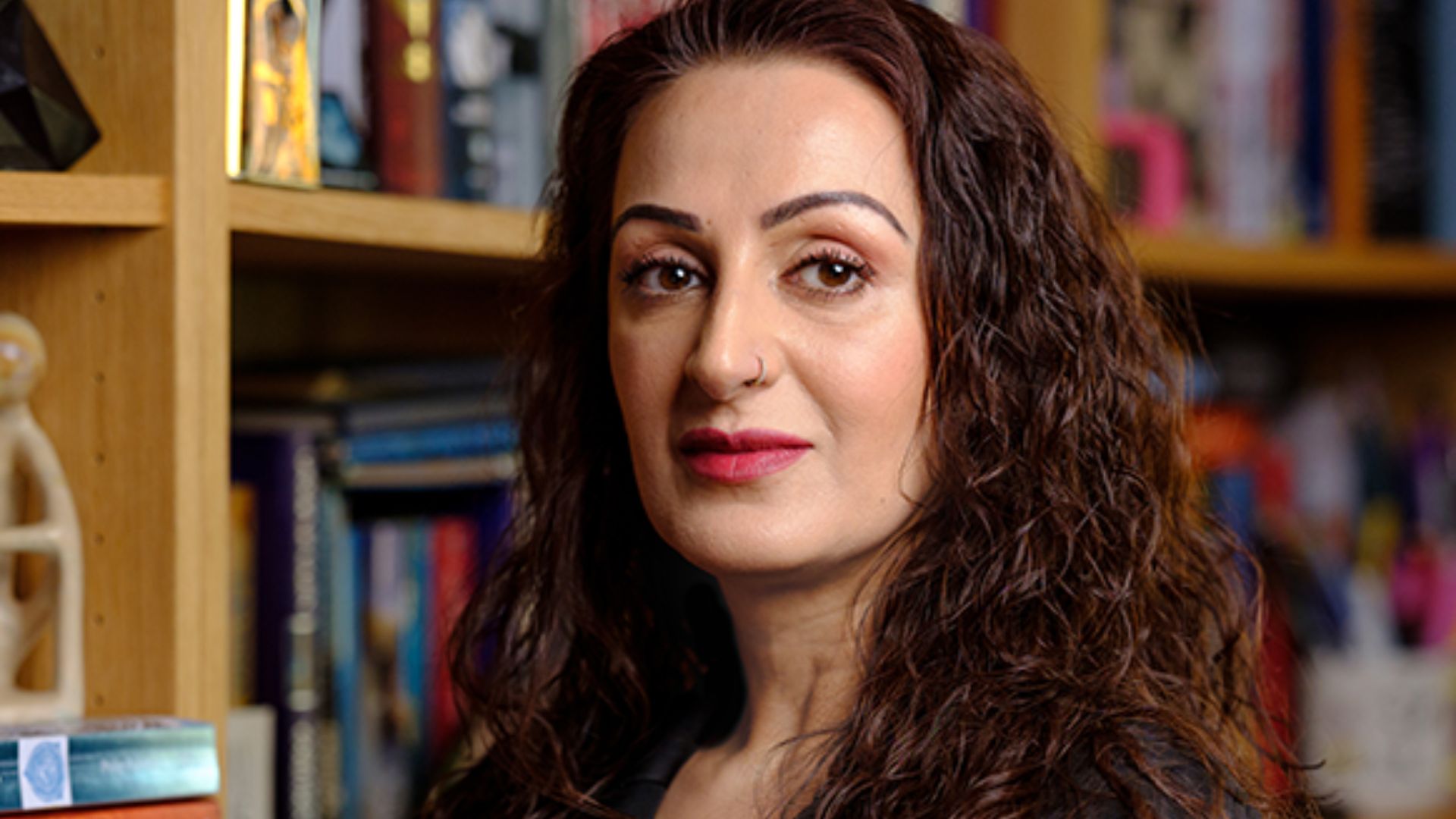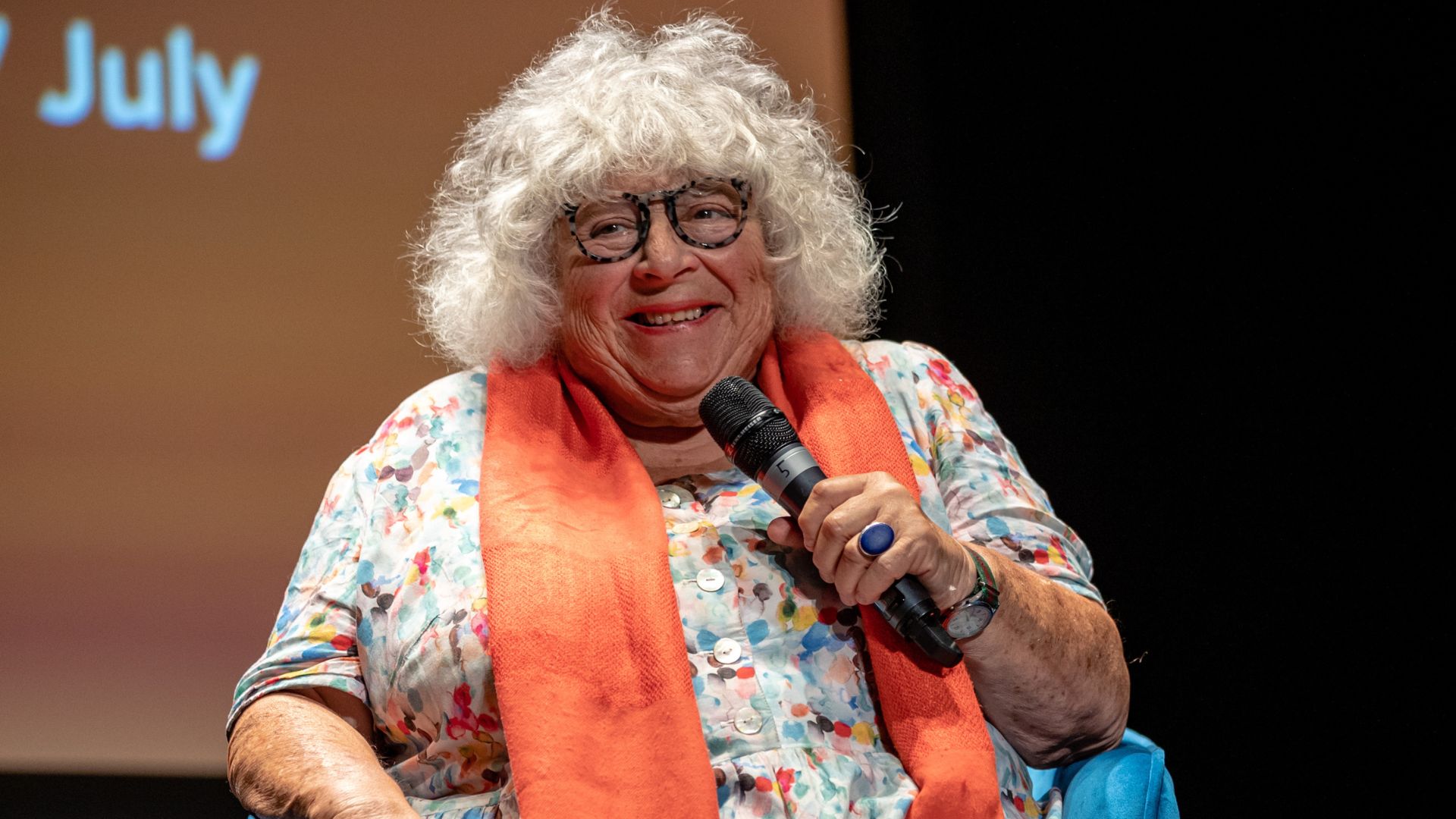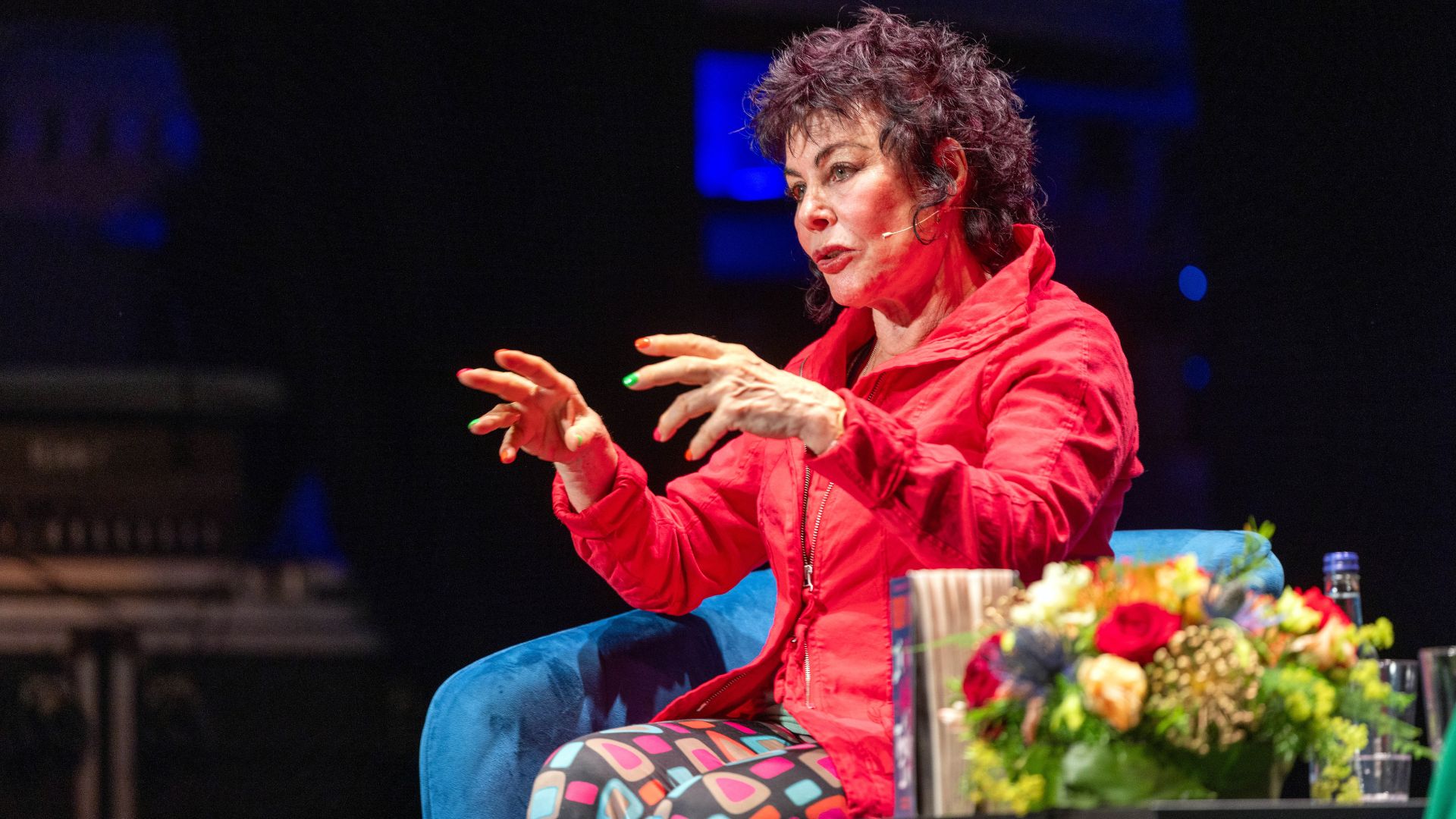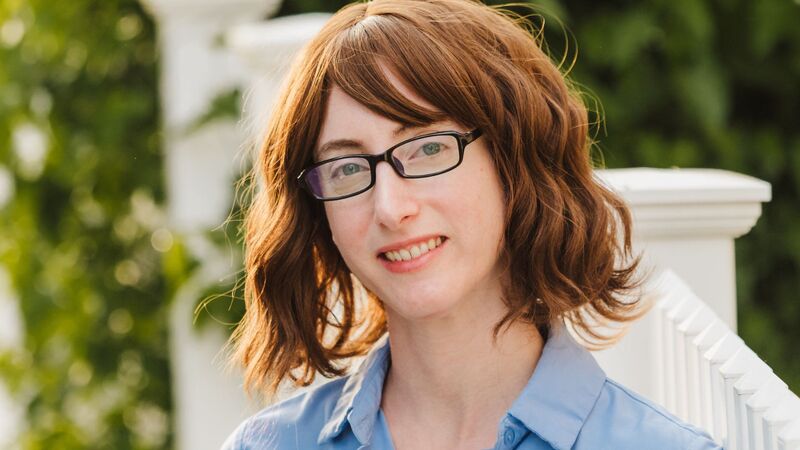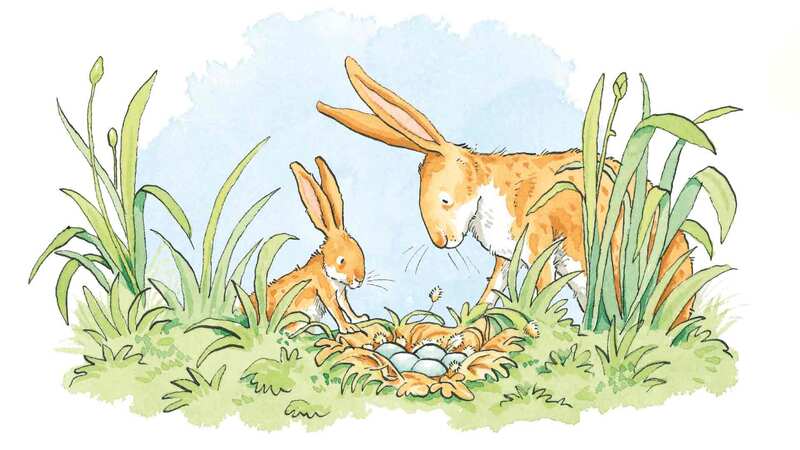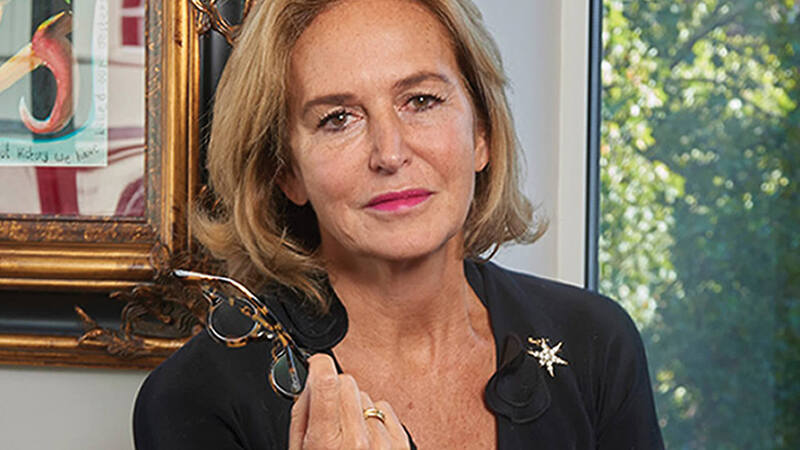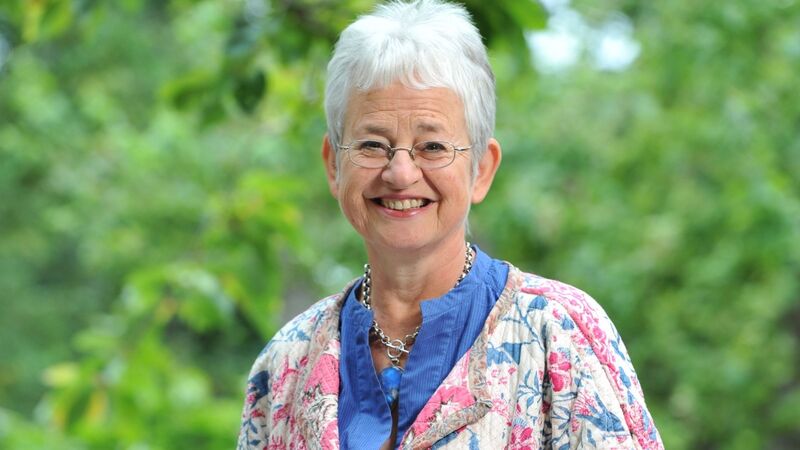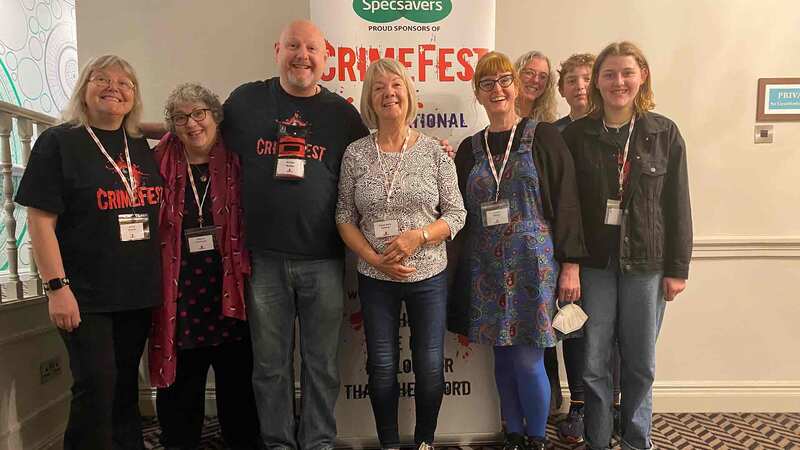You are viewing your 1 free article this month. Login to read more articles.
Bradford Lit Fest founder Syima Aslam reflects on 10 years of the festival—and what's next
Bradford Literature Festival’s 10th anniversary (28th June to 7th July 2024) was a "tremendous" success despite access to fewer venues, founder Syima Aslam has told The Bookseller. Ticket sales were up on last year despite there being fewer ticketed events as a result of construction work ahead of Bradford being made City of Culture next year.
"We were worried about it [as] a lot of Bradford is dug up at the moment. We lost City Hall, which is like three venues for us," she said, "So we were really down on venues." Similarly, the general election falling during the festival was a concern.
"The election thing was quite funny, having that right in the middle of the festival. We had our ‘Poetry with a Punch’ event on the 4th, which is normally bursting at the seams. And it was full, but it wasn’t bursting at the seams. So we did see a little bit of an impact on that first day." Jeremy Corbyn, who had been scheduled for an event on Monday, also had to drop out and tickets were refunded. "So there was more of an impact from that side, rather than in terms of audience attendance," she said.
But despite this year’s challenges, as Aslam and her team crunch the numbers, they’re already seeing that audience attendance was higher this year than in 2023, with tickets for headline events with the likes of Mary Beard, Miriam Margolyes and Shaykh Hamza Yusuf selling out within hours.
"We had a lot of sold out events with very, very big audiences," Aslam explains. "Those events sold out without us going live, in that we decided to put the website live but not tell anyone, because we were like, ‘Let’s just put it live’. We’ll announce it tomorrow, but let’s just make sure everything is working. We did it late, it was something like four or five o’clock in the afternoon without saying anything, and a couple of hours later, those events sold out. It was really funny because I said to my team, ‘this is your Taylor Swift moment’."
Key to the festival’s continued success, Aslam says, reflecting on the last 10 years, is its steadfast commitment to diversity and inclusion, not only when it comes to its audiences but in its programming, too. "That’s something that’s been very important to me," she explains. "That diversity doesn’t just mean ethnic diversity, the big focus was also always socio-economic diversity. I kept saying, if you think about socio-economic diversity, you will bring in all the other diversity, because actually, you can’t talk about wanting people to engage with arts and culture, and not think about the socio-economics of it."
"What I find very interesting is that I think there’s always a focus in terms of diversity from a point of view of ethnicity. And what I feel is that actually, if you’re middle class upwards, regardless of your ethnicity, you engage with arts and culture." To encourage attendance, the festival operates an ethical ticketing system, where free and discounted tickets are offered, for example, to benefits recipients, refugees and asylum seekers, carers and those with a disability. Uptake of these tickers was higher this year, Aslam says, in her view at least in part due to the cost of living crisis.
Education is also integral to the festival’s mission, rather than being an "add-on", and its goals to widen access in the arts. "Because we provide the free education programs, the free stuff for children, young people, ethical ticketing, that’s future economic impact. We know that there are some children who might never think that a literary festival is for them, or the parents don’t see this as being something something for them, so they won’t bring their kids along. [But] a lot of storytelling, crafts, activities, theatre, outdoor theatre, all creates engagement without it being this big frightening thing. Because there are some spaces that people are scared to step into, there’s a threshold fear."
Aslam is hopeful that the new Starmer-led government will step up to support literary festivals and the wider cultural sector, especially amid a fraught funding landscape for literary events, and acknowledge that "culture is not a luxury".
"I think this thing that we’ve had around STEM is really, really important, but actually—and this is a very fundamental thing that we say about BLF—if you don’t have literacy, every part of the curriculum is closed to you," she said.
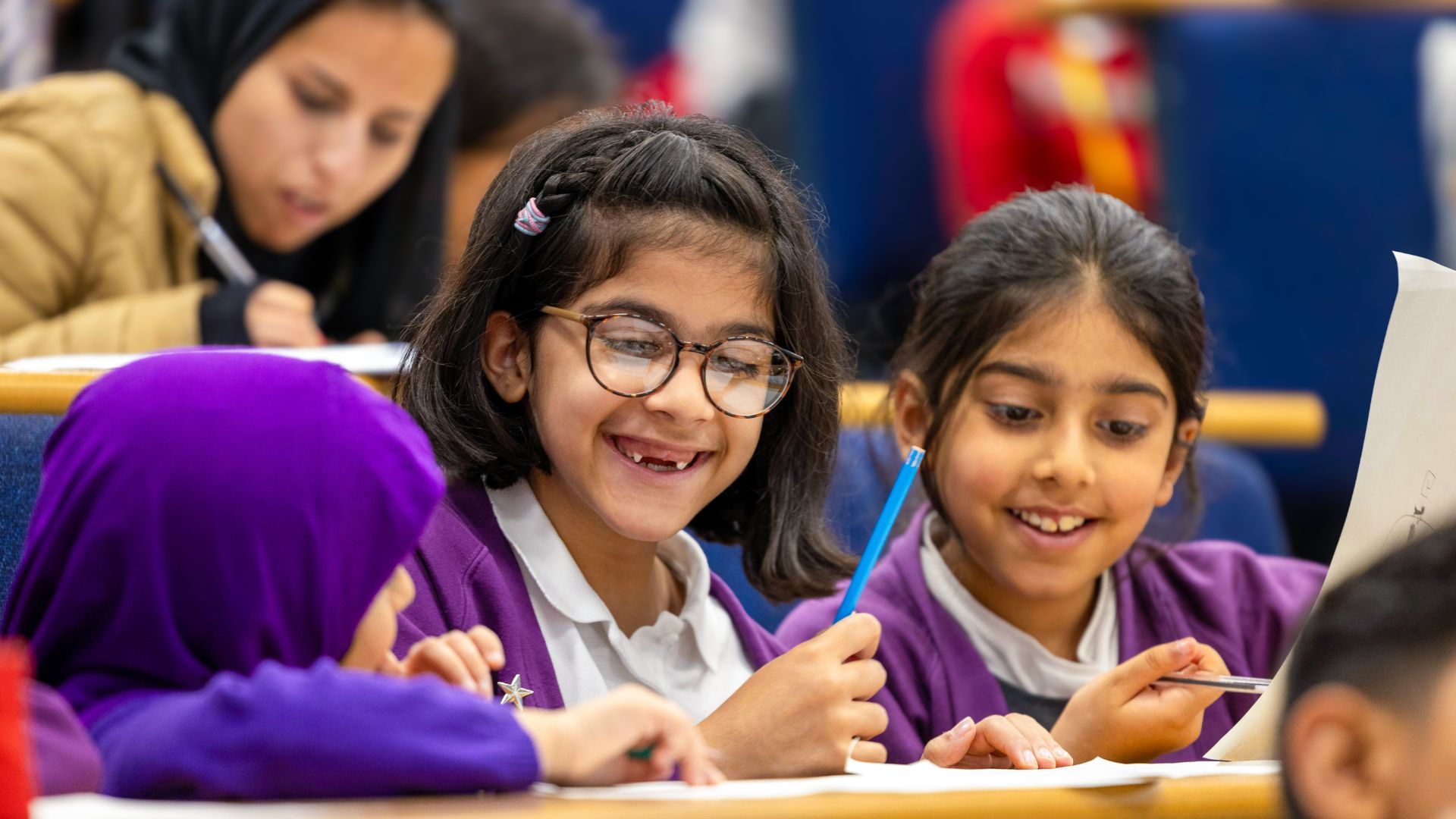
"One of the things that we actually need to think about is the importance of literacy, the importance of the arts, and the importance of creative thinking. I think the things that the government has said about arts education is really important. Of course, they get into office and then there’s all the constraints, but I hope that this is something that they will really follow through on. Obviously there needs to be a period of assessment and all the rest of it. But I hope that this will actually create long term change."
On her hopes for the next 10 years of the festival, Aslam said: "From my point of view, for these first 10 years we’ve been building the foundations; now it’s about building the rest of the edifice. I think, for me, in 10 years time I hope we’ll have gone from being an organisation to more of an institution. I hope we really help shift that dial. What’s been very interesting for me is the level of development work that BLF has been able to do, and not because we are a development organisation, but because we create a platform for people who wouldn’t otherwise get a platform. We put people together who would never otherwise be put together."
Aslam added that she is proud she and the organisation hasn’t "drifted" in order to "fit funding models". "Thinking back on these 10 years, we’ve grown and we’ve developed and our audience themselves have changed massively, the size of the organisation, the funding levels, all of those things. But I can say hand on heart, if I read that vision, the aims and objectives that we had 10 years ago, we’re still absolutely aligned on those," she said.
"And I think that’s really important, because, particularly when I look at funders, there is such a straitjacket around some things. It’s very easy to drift because you’re trying to contort yourself to fit funding models. So I feel quite proud of the fact that actually, we’re still very much on vision.
"I think what BLF has done is that actually it’s created a real confidence. It’s been one of the cities with low engagement in the arts and funding going into it. Historically, the metric of pounds per person in the area, it’s been really, really low. And while Bradford has always been innovative and cutting edge—you had the Bradford Mela that used to be massive and attract people from all around Europe—at the point when BLF came along, a lot of those things had fallen away or been really reduced down. And I think BLF coming along with that aim to be an international destination festival, which initially people just thought was a bit mental, at this 10 year point we can say, the proof has been in the pudding.
"We’ve built brilliant international connections, we have new partnerships with people like Emirates, and we’re one of the top festivals now in the UK. I hope that we, in the next 10 years, will completely solidify that and be a key part of the cultural fabric of the country."





